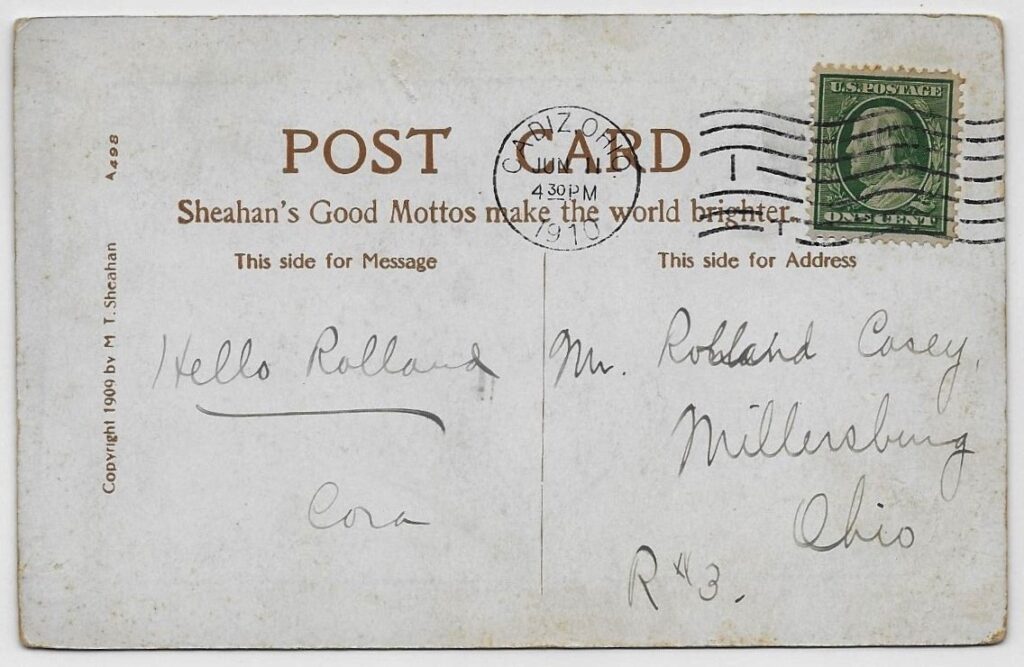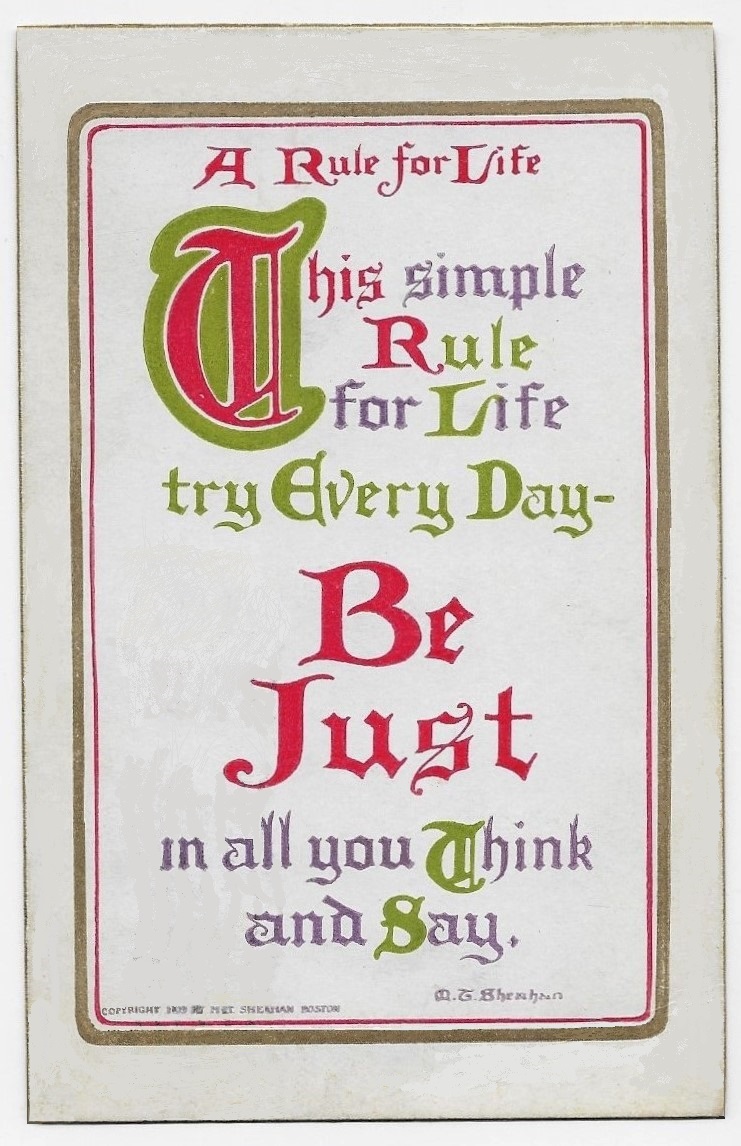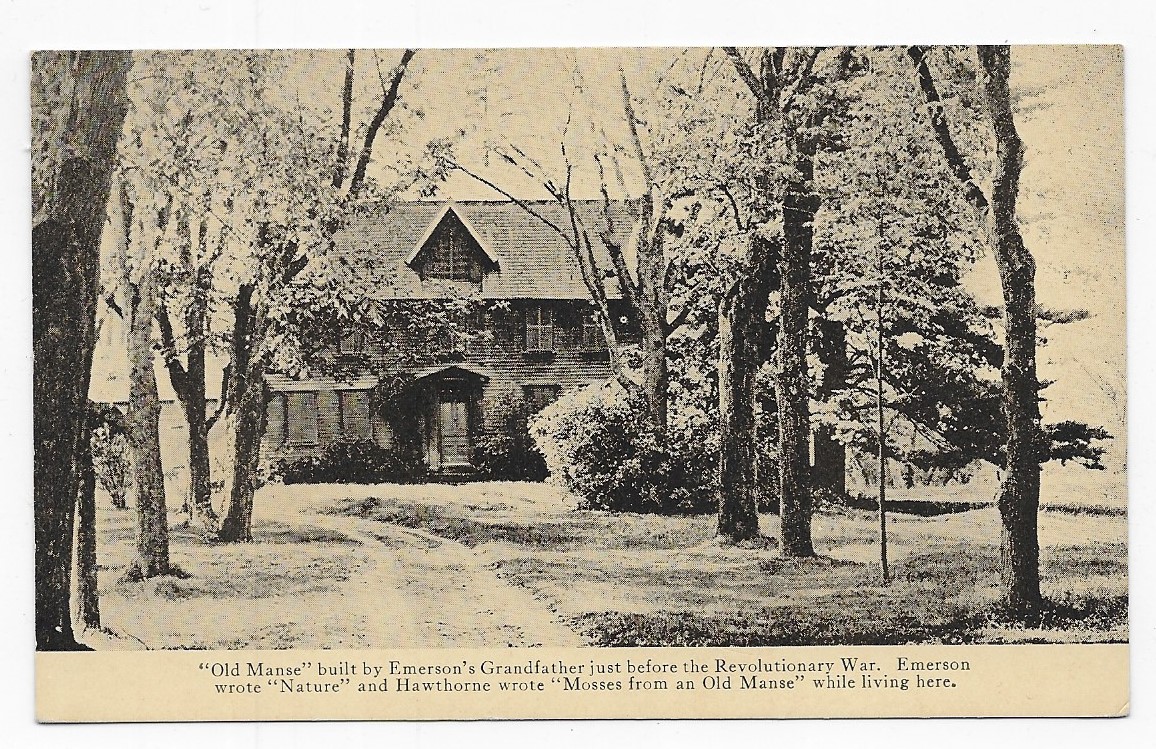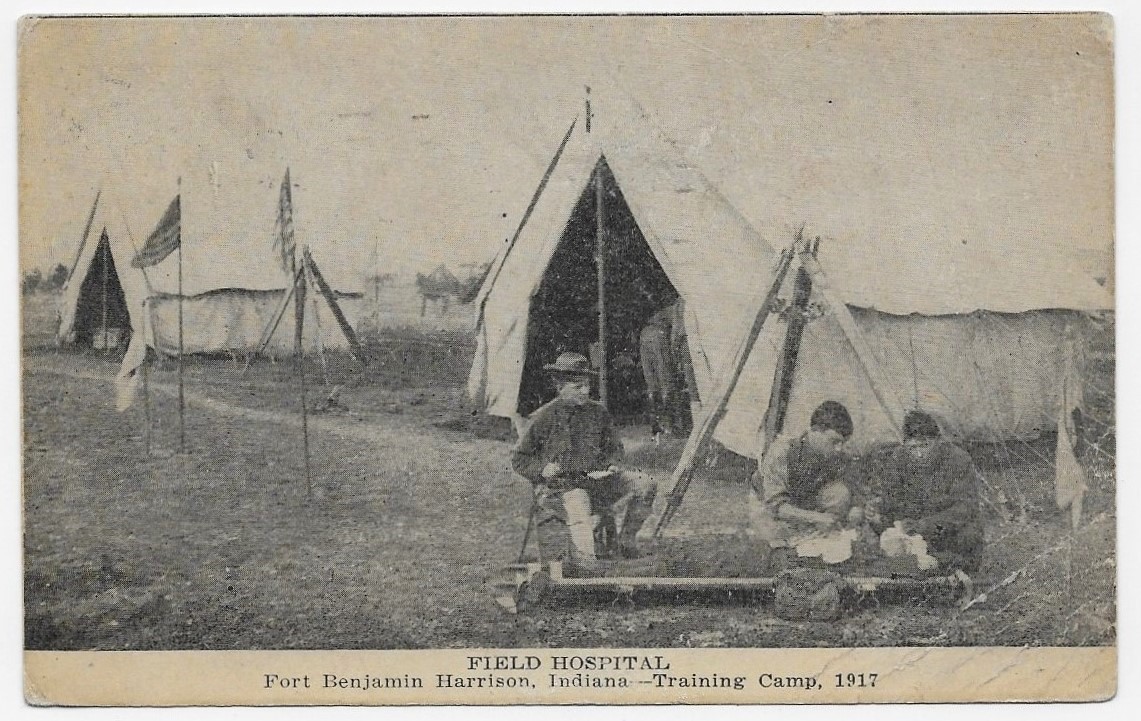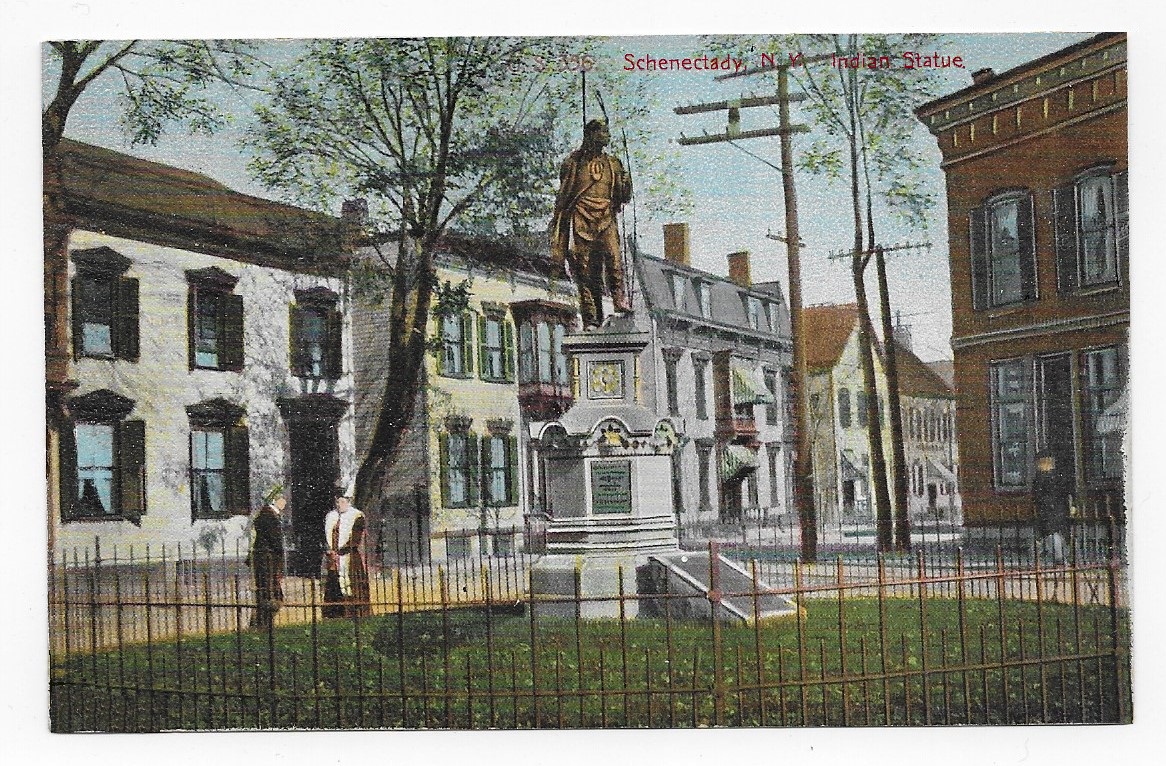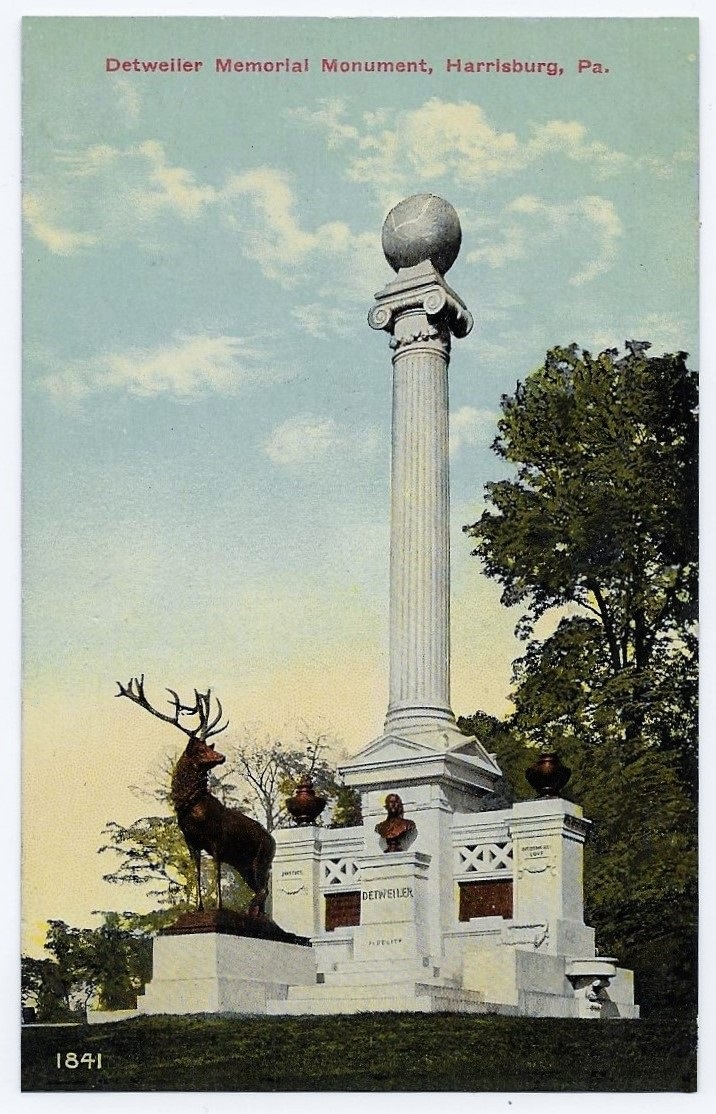Mr. Rolland Casey lived in Millersburg, a village in Holmes County of northeast Ohio,
Located 66 miles south of Cleveland, Millersburg is now the heart of a large Amish community and of a tourism industry.
https://en.wikipedia.org/wiki/Millersburg,_Ohio
In June of 1910, Rolland received a postcard motto from Cora.
Cora mailed the postcard from Cadiz, a village in Harrison County of east-central Ohio,
Cadiz was founded on 1803 at a junction of roads leading westward from Pennsylvania.
Originally an agricultural community, Cadiz was transformed by the discovery of coal and oil in the area.
https://en.wikipedia.org/wiki/Cadiz,_Ohio
Millersburg is about 61 miles northwest of Cadiz.
+ + + + + +
The face of the postcard is a motto enclosed within a gilded border.
A printed title declares “A Rule for Life”.
In ornate letters, a rhyming couplet contains the rule:
“This Simple Rule for Life Try Everyday –
Be Just in all you Think and Say.”
These sentiments recall the maxims of Ben Franklin and the rigorous practice of self-examination that characterized the life of George Washington.
The theme of acting justly would also recall, for most Americans of the time, the Biblical admonitions to “do justly” and to “love mercy”
From the Google summary:
“Do justly, love mercy, walk humbly” is a verse from the biblical book of Micah 6:8, which calls for people to act with justice and compassion, and to have a humble relationship with God. “Do justly” means to act honorably and righteously, standing up for what is right.
Authorship of this motto is ascribed to the publisher, M. T. Sheahan of Boston.
The words and design were copyrighted by the firm in 1909.
(In the past, we have seen a number of similar mottos, including one by Sheahan: “Words Better Left Unsaid”.)
+ + + + + + +
In other postcard stories we have noted how many inspirational and aspirational postcards were exchanged in the early 20th century.
There was enormous enthusiasm for self-improvement and for social progress.
The general English optimism of the late Victorian Era was reflected in the correspondence of Americans.
Alas, World War I dampened the optimistic spirit – and postcard mottos of the 1920’s show a change of mood to focus more on adventure and pleasure.
